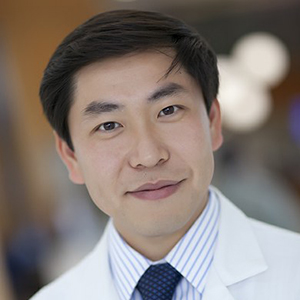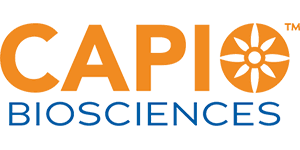Biography
Dr. Andrew Wang is a physician scientist at University of North Carolina whose research has been focused on clinical translation of nanotechnologies for cancer management. He is Director of Clinical Translational Research in the Department of Radiation Oncology and co-Director of the T32 Carolina Cancer Nanomedicine Training Program. He holds adjunct positions in the Department of Urology, Department of Biomedical Engineering, and the Molecular Therapeutics Program in the School of Pharmacy. Dr. Wang obtained his MD from the Harvard-MIT Health Sciences Technology program and completed clinical oncology training in the Harvard Radiation Oncology Program. During residency, Dr. Wang completed a postdoctoral Fellowship under the dual mentorship of Prof. Robert Langer at MIT and Dr. Farokhzad at BWH. Dr. Wang has been collaborating with Dr. Hong on the clinical translation of CapioCyte™ CTC technology for 6 years. Their collaboration resulted in exciting clinical data leading to the formation of Capio Biosciences.
Clinical Dx Showcase:
Capio Biosciences
Capio Biosciences is a biotech start-up focused on delivering high-value oncology diagnostics to help inform patient care and improve outcomes. We are currently developing an advanced liquid biopsy platform for the capture of circulating tumor cells that delivers ultra-high sensitivity.
CapioCyte™ Liquid Biopsy Cancer Biomarker Development
Circulating tumor cell (CTC) holds high potential as an important cancer biomarker and liquid biopsy solution. However, clinical adoption of CTC assays has been hindered due to low sensitivity. Our company has developed a highly sensitive CTC assay—CapioCyte™. We have obtained exciting clinical data demonstrating CapioCyte’s potential in impacting cancer management.
Session Abstract – PMWC 2020 Silicon Valley
The PMWC 2020 Data Applications in Clinical Diagnostics Showcase will provide a 15-minute time slot for selected organizations, including commercial companies, clinical testing labs, and medical research institutions, to present their latest advancements, insights, applications, and technologies to an audience of clinicians, leading investigators, academic institutions, pharma and biotech, investors, and potential clients. We will learn about new technologies and findings that promise expedited, cost-effective, and accurate clinical diagnosis for early disease detection, treatment decisions, and disease prevention.









